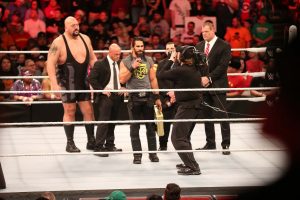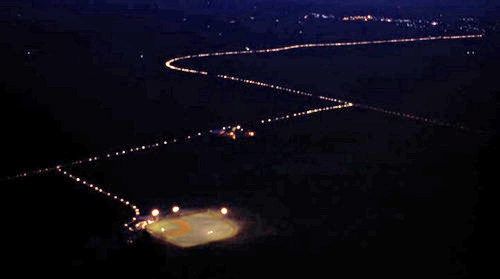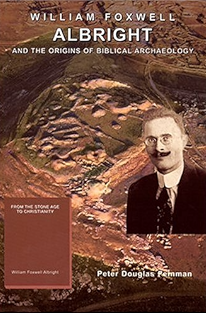
Davenport, Iowa, does not make the front pages often. Except for the flooding of the Mississippi, Davenport is normally part of the flyover country. It never attained the status of Peoria. But every now and then like Brigadoon it reappears on schedule. These sightings occur not once every century but once every four-years along with its sister communities in the state. It does so because of the Iowa caucuses for the nomination to be president of the United States.
It is in Iowa where a former Vice President accused the current President of being an existential threat to the character of the nation. It is in Iowa where Individual #1 returned to his favorite venue: the professional wrestling arena where he performs in the role of THE DONALD. He feeds of that energy the way normal human beings need oxygen. If Jon Meacham is correct and he is a professional wrestler 24/7, then there is no there there, he always is reality TV character. But as Hugh White, emeritus professor of strategic studies at the Australian National University said on the appeal of China over America: “Trump looks weak and unreliable, despite the tough talk.” The rest of the world has caught on that the DONALD is not real, Trumpicans have not. It’s showtime in Iowa.

Unbeknownst to many, the quadrennial return of the political circus to Iowa is part of a longstanding tradition in the state. The idea of outsiders traveling throughout the state to entertain the people and bring news from back east is part and parcel of the Iowa DNA. The people of the small communities have been looking forward to such entertainment juggernauts for more than a century.
I am referring to the now-forgotten but once major phenomenon of the Circuit Chautauquas. These traveling shows brought to the local communities the “talent” they lacked. These communities fervently anticipated THE SHOW. It was big news when the advance team arrived in town to erect the tents that would be home to the show soon to arrive. It reminds me a little of the scenes in Showboat when it first appears at the towns along the river to the sounds of whistles announcing the big show was coming.
Circuit Chautauquas were extremely properly in their time before World War, the radio, the movie screen, the TV, and, of course, the internet. They were the link to the larger world with real people from that world now standing right before them to explain that world to them and to entertain them. At the center of the Circuit Chautauquas was Iowa where for a while it was headquartered. For Teddy Roosevelt the Circuit Chautauquas were the most American thing in America.
But the times, they were a changing even as the Circuit Chautauquas were in their prime. The Iowa world was experiencing a change just as it thought it had everything just the way they wanted it to be. From the 1850s onward, Iowa had become the fulfillment of the American Dream.
Let’s turn to the words of the Methodists of the Upper Iowa Conference. The term “conference” does not refer to a sports league. It is a Methodist term somewhat like diocese or parish. These conferences would be created as Methodists moved across the country as the United States expanded. At one point a conference might be quite extensive like the Louisiana territories. Over time as people settled, smaller and smaller conferences would be carved out just as states were. One such conference was the Upper Iowa Conference. These rural conferences were serviced by circuit riders, the heroic itinerant warriors of light, who traveled throughout their assigned circuit bringing religion to people scattered in in the forests and on the plains. Then there were the annual camp meetings to bring people together. Then the Circuit Chautauquas. Then the State Fairs. And now the Presidential Caucuses…which do not do as good a job of bring people together as the earlier shows but do attract more national attention.
The Upper Iowa Conference reports in the last decades of the nineteenth century and the beginning of the twentieth century tell the story of a people confronting what they perceived as a new threat to their way of life. The world had changed quickly. One moment the Iowa Methodists were celebrating the victory of the Union (1865), the centennial of Methodism in America (1866), a part-time Methodist who had become president of the United States after having led the Union armies to victory (1868-1876), and the centennial of America (1876), and then suddenly they were fighting an old threat which they didn’t expect to see on their doorsteps.
The apocalyptic description of the state vote on prohibition by the Iowa State Register on June 25, 1882, reflects the new field of battle:
The two armies on the contest over the amendment move into the field to-morrow for the contest on Tuesday. To-day the two legions are passing by; to-morrow they will be camped on the threshold of the day of conflict, each under its own colors . . . . No fairer army ever moved under fairer banners than that which is going now into the field of open context to battle for the amendment . . . . Here is the other army—the army of occupation, silent, sullen and dark. It puts no song on the air, and has no flag to give to the breeze, and no voice in all the earth praying for it . . . .
Demographic trends of post-Civil War America affected the Midwest. The report of an Upper Iowa district at the 1883 Conference contained the following concern about local events: “Upon the river borders Catholicism and German rationalism press upon us. Rum and Rome and Rationalism practically coalesce while Protestantism, pressed into the minority, instinctively ‘rises and retires.’”
In the Upper Iowa Conference, the battle against foreign elements resumed with gusto in 1885. It resolved that Romanism had to be stopped. They were going to take back their country from these foreigners with their alien religion, different ethnicity, and loyalty to foreign leaders. It was as if the Upper Iowa Conference Methodists were watching all their hard work in fulfilling the American Dream had come to naught. Everything they had built and struggled to achieve was being undone by an alien presence of those who did not live what they perceived to be the American way of life.
The missionary activity stressed by the Upper Iowa Conference in 1887 was domestic not foreign:
Throughout a wide area on either side of the Mississippi river, a foreign immigration has been steadily driving out our native population and has so weakened our Churches as to make it impossible in some cases and difficult in many, to maintain our existence.
The battle raged on against the foreign element. It can be tracked in the annual report of the districts. For example, in 1892, Decorah reported an heroic effort against the depletion of its eastern borders: it was fighting the good fight to hold the territory for Protestant Christianity. Dubuque Methodists declared than even in the midst of a Roman Catholic population, it was not dead. This conflict was no idle matter to the people who had settled the prairies only a few decades before only now to find themselves fighting for their cultural and religious life in the land they regarded as home.
The 1899 Conference report from the DAVENPORT district asked the question: “Am I in the United States of America, or Scandinavia, or the Emerald Isle, or Germany?” In doing so it echoed the words Benjamin Franklin wrote in 1751 in response to German immigration in Pennsylvania. Now these alien immigrants from Scandinavia and Germany among elsewhere continued to overrun the land threatening the Methodist and therefore American way of life. Looks like Norway was a Trump-hole country to these Iowa Methodists!
The Decorah district in 1902 reported a disturbing trend in the once-Methodist lands:
. . . [T]he stranger has got possession of the gates, and the native American Methodist farmer seems, and feels himself to be, a stranger in the new surroundings. Germans, Scandinavians, Bohemians and Irish are buying the farms all the more easily, because the American early settlers have reached years when they wish the rest they have earned and the advantages of town life and have the means to gratify the desire. The new occupants bring with them Romanism, Lutheranism, or hatred of all churches, and whatever the form it is in the antagonism to Methodism. Notwithstanding, we are still optimistic, because we believe in God, the gospel go-ahead-itiveness, which last is a synonym for Methodism.
These people even thought of themselves as native Americans! Obviously they were not woke!
The situation only seemed to get worse. In 1904, DAVENPORT reported only three Methodist pastors in a county of 45,000 people as the “old stock . . . sold out and moved to the city or died off, and the foreigner [came] in to take the[ir] place . . . . In many places the old church buildings still stand like the Druidic pillars of old England, to mark the glory of the past.” Decorah continued to report the dominance of foreigners and Dubuque joined the parade of bewailing the transformation of the land from one of Protestants to Roman Catholics.
In 1905, DAVENPORT sought to focus on the young new arrivals as the most likely candidates for saving through education: “The spirit of our fathers, who two generations ago reclaimed this territory from frontier barbarism, and the methods of our missionaries in the fatherlands of some of these same foreigners will work out great results for the Master.” The evangelization of the world required the Christianization of America which was now a battlefront. Decorah reported that the Pope “evidently has designs on fair Iowa.”
Then things began to change. The 1912 Conference was upbeat about the prospects for the community, the state, and the country. Perhaps the long-term plan of educating immigrants to be Americans was finally paying off:
The time is come, or about to come, when the loss of membership on account of the inroad of the foreigner, and the departure of the American is being stayed. In some localities the foreigner is disappearing, and the American is returning to his own. In many other communities the foreigner is becoming so American as to demand English preaching. This is specially true of those of the second generation of the alien . . . . [M]any are finding out that the same reason for coming to America at all is the same reason for coming to the Methodist Episcopal Church.
The following year the Conference report proudly declared that those born in the country have learned English and have demonstrated a strong proclivity for American institutions. Perhaps America was a melting pot for people who seek to be free after all. Maybe Iowa could even become a Field of Dreams for all Americans and not just presidential candidates.
At the 1918 conference, the Dubuque district which had been struggling with the impact of immigration reported that the polyglot community now spoke English thanks to the public schools and the great world war. The Conference expressed great optimism about the world to come given the pending Allied victory:
When this war shall come at last to its final end with a peace that shall have in it no compromise with evil, but an end that shall mean an end to all wars, when autocracy shall everywhere be superseded by a world-wide democracy . . . . [W]hen there shall come to us, whose sons are now in this gigantic struggle, the time of the “sunset and evening star,” we can look upon the great and eternal gains, that have been secured, and we can say with proud satisfaction, “My children were in that war.”
Methodists had given their blood to make God’s Kingdom safe for democracy. Bleeding alongside of them on the European battlefields over there were the newcomers to the Upper Iowa Conference lands. They also had become Americans by choice. As the celebration of the Methodist Centenary approached, Upper Iowa Methodists eagerly anticipated the century to come. Now that a century has passed since then, I wonder what they think of the new culture war and the current crop of presidential entertainers.
For additional information see Peter Feinman, “The Methodist Upper Iowa Conference: From Wilderness to Melting Pot,” Methodist History 47 2009:226-241.






